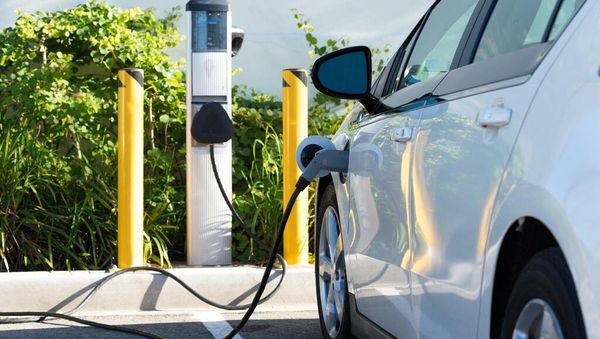
Energy is vital to our daily lives. We need reliable supplies to heat our homes, to cook, to keep our food fresh, to power our transport systems, to illuminate our cities and to stay in communication with each other. Ensuring there are no significant disruptions to that provision is one of the most important tasks that a government must perform on behalf of its citizens.
In recent months, it has become clear that serious strains are now being placed on energy security in the United Kingdom, however. Spiralling gas costs are causing considerable financial difficulties for thousands of households. At the same time, electricity supplies are now threatened because most of the UK’s ageing nuclear reactors, which currently provide 20% of our electricity, face closure in the next few years with little prospect, at present, of new atomic power plants being ready to fill the gap in lost output.
On top of these issues, an urgent overhaul of our use of fossil fuels is required if the country is to have any chance of reaching its goal of achieving net zero carbon emissions by 2050, a promise made by the government as part of its commitment to tackle climate change and to help halt the dangerous warming of our planet.
At present, roughly half our electricity is generated by burning natural gas in power plants. About half of that comes to our shores from North Sea rigs whose overall output is dwindling as gas fields reach the end of their lives. The rest of our gas is imported from other nations; most of it is shipped from Qatar or the US or piped from Norway. Very little is imported from Russia, it should be noted.
In addition, gas plays a dominant role in heating our homes, a reliance that cannot last for much longer if we are to meet our climate change obligations. In short, we need, as a matter of priority, to replace gas with electricity generated in a safe, renewable, environmentally friendly manner.
The nation can achieve this goal in two ways: it can import more electricity from mainland Europe (around 6% of our power already comes via inter-connectors to France, the Netherlands and Ireland) or it can find alternative sources within the UK. The latter path is very much the preferable one, both in terms of establishing security for our energy supply while also ensuring this power is generated in a manner consistent with our carbon emission aspirations. Energy security and fighting climate change are inextricably linked, in other words.
This transformation needs to be done as a matter of urgency, however, a point that appears to have escaped ministers whose attempts to reshape power use in the UK have already started to unravel. Consider the government’s green homes grant scheme for England. Hailed by Boris Johnson as a key plank in his green industrial revolution by helping the public make their homes more energy-efficient and less reliant on fossil fuel heating, it targeted a total of 600,000 homes for improvement. In the end, however, only 47,500 were upgraded. As Dame Meg Hillier, chair of the public accounts committee, put it last year: “This scheme was a slam dunk fail.”
Such setbacks are alarming and underline the urgent need for ministers to provide the nation with a cogent, detailed set of proposals for generating power securely and sustainably while minimising energy waste.
Several key issues need to be addressed to achieve these goals. The first is the creation of a system of smart grids. These local networks would distribute power generated from renewable energy sources to supplement mains supplies and reduce electricity bills. Establishing such a system should be seen as a priority for they offer the prospect of making maximum use of power generated within our shores at low cost.
Properly insulating buildings would have a similar effect. Despite Johnson’s green homes initiative failure, efforts to make homes and workplaces more energy-efficient should be redoubled. It will not be possible to fit every house in Britain with a heat pump or solar panels. Nevertheless, making more houses and offices greener today will have critical impacts in coming years.
Providing power when weather is gloomy and winds are non-existent is also key. At present, nuclear and gas-power plants provide that electricity. The disappearance of the latter over the coming decade will put more pressure on the UK to develop an efficient atomic power programme. Currently, our nuclear plans look piecemeal and unimpressive, despite last week’s announcement of a £100m investment to help develop the Sizewell C power station in Suffolk.
Further research is also needed to find new, efficient ways to store energy, so power from renewable sources can be stored for those gloomy, windless days. We also need to find ways to capture and store carbon dioxide from old power plants and so extend their lives.
Such developments will be crucial in providing the nation with a full range of options for generating its own power securely and cleanly. The alternative is to sit back and allow these issues to be resolved beyond our shores. In a world where energy will become ever more critical to national survival, that is not an option to be countenanced.










